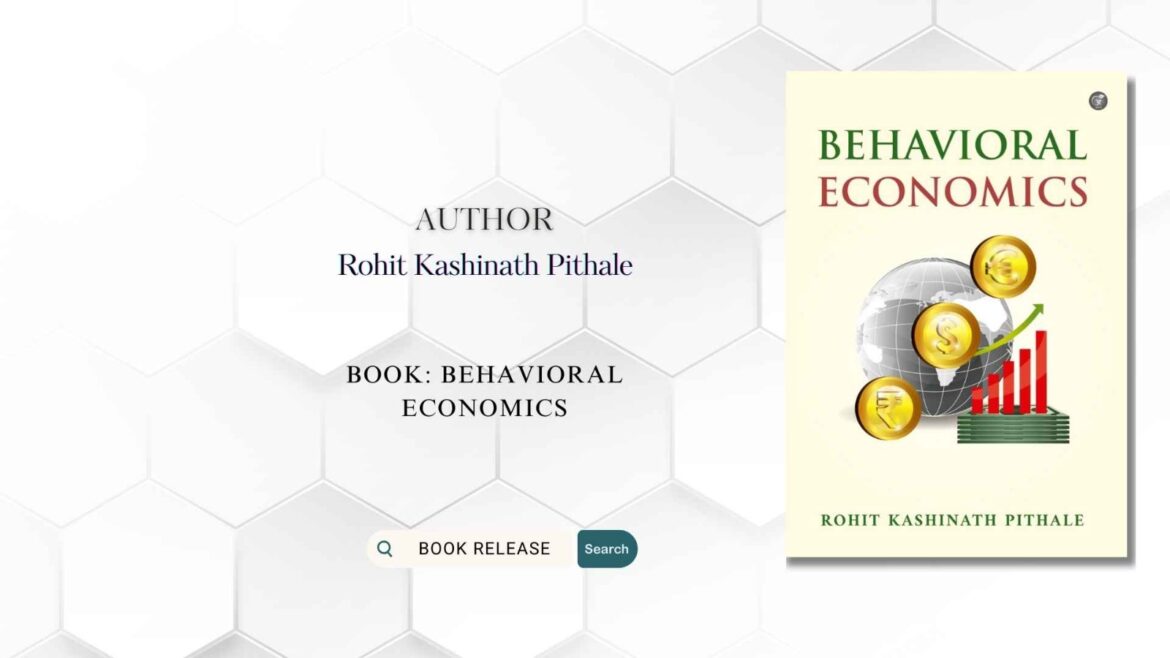The release of Behavioral Economics by Rohit Kashinath Pithale presents a timely and essential addition to the field of modern economic thought, offering a nuanced understanding of how people actually make decisions—not just how they are assumed to make them in classical economic models. This comprehensive work explores the fascinating intersection of psychology and economics, questioning the long-held belief that individuals are always rational actors and instead highlighting the many ways in which real-world behavior deviates from theoretical predictions.
At its core, the book provides a deep and structured examination of the cognitive biases, heuristics, emotions, and psychological influences that shape human choices in economic settings. Drawing on the seminal research of pioneers like Daniel Kahneman, Amos Tversky, and Richard Thaler, Rohit Kashinath Pithale unpacks foundational concepts such as bounded rationality, prospect theory, framing effects, mental accounting, and nudging. These ideas are not only discussed theoretically but are also brought to life through vivid real-world examples and empirical findings that make the material both relatable and intellectually stimulating.
What distinguishes this book is its well-organized format, designed to offer both breadth and depth. Divided into six thematic units, the book features twenty-four chapters and one hundred and fourteen sections. This structure allows readers to progress from the basic principles of behavioral economics to its more complex applications in public policy, business strategy, financial decision-making, and digital environments. Whether it’s understanding consumer behavior in markets or analyzing how policymakers can use behavioral nudges to improve welfare outcomes, each chapter is crafted to illuminate the psychological undercurrents of economic activity.
The writing style is clear, accessible, and engaging, making the book suitable for a wide range of readers, including students, scholars, business professionals, and policymakers. Rohit has successfully blended academic rigor with practical application, ensuring that even the most complex ideas are presented in a way that is easy to comprehend and apply. The inclusion of case studies, experimental results, and behavioral experiments further enhances the learning experience and encourages critical thinking.
Behind this scholarly achievement stands Rohit Kashinath Pithale, a respected economist, academic, and author whose work reflects a deep commitment to understanding the evolving nature of economic systems. As an Assistant Professor and active researcher, Rohit brings a wealth of experience to this book, having authored several important titles such as Economics of Climate Change, AI and Indian Economy: Present and Future, Sustainable Urban Development: Economics of Smart Cities in India, and The Economics of Information. Each of his works demonstrates his ability to weave together theory and real-world relevance in a way that resonates with both academic and non-academic audiences.
Rohit’s academic journey is grounded in a passion for simplifying complex concepts and making economics an inclusive field of inquiry. He is known for his ability to foster curiosity, inspire learners, and generate thoughtful discourse through his writing and teaching. Deeply influenced by his personal values and the unwavering support of his mother, Rohit’s intellectual contributions are also shaped by a sense of purpose and integrity.
With the release of Behavioral Economics, Rohit Kashinath Pithale adds another landmark title to his growing repertoire of influential economic literature. This book is more than a study of how we behave as economic agents—it is a guide to understanding ourselves in a world of choices, constraints, and uncertainty. It calls on readers to rethink assumptions, recognize cognitive limitations, and embrace a more realistic and humane view of decision-making in economics.
As behavioral insights continue to influence everything from marketing strategies to government policies, this book is poised to become a foundational text for anyone seeking to navigate the complexities of the human mind within economic frameworks. It offers not only knowledge but also a practical toolkit for better decision-making in personal, professional, and policy realms. In doing so, it redefines the way we understand economics—not as a purely rational science, but as a discipline deeply embedded in the fabric of human behavior.
